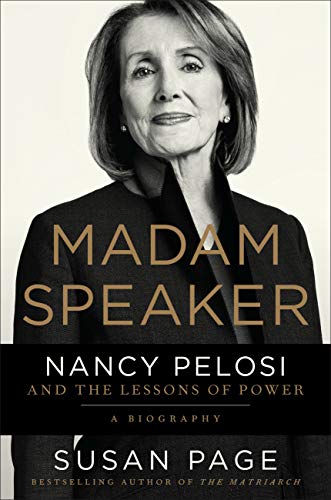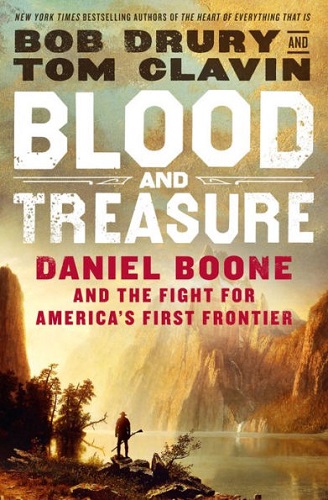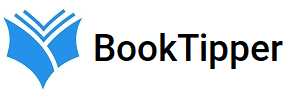
WORLD TRAVEL
by Anthony Bourdain & Laurie Woolever
A guide to some of the world’s most fascinating places, as seen and experienced by writer, television host, and relentlessly curious traveler Anthony Bourdain
Anthony Bourdain saw more of the world than nearly anyone. His travels took him from the hidden pockets of his hometown of New York to a tribal longhouse in Borneo, from cosmopolitan Buenos Aires, Paris, and Shanghai to Tanzania’s utter beauty and the stunning desert solitude of Oman’s Empty Quarter—and many places beyond.
In World Travel, a life of experience is collected into an entertaining, practical, fun and frank travel guide that gives readers an introduction to some of his favorite places—in his own words. Featuring essential advice on how to get there, what to eat, where to stay and, in some cases, what to avoid, World Travel provides essential context that will help readers further appreciate the reasons why Bourdain found a place enchanting and memorable.
Supplementing Bourdain’s words are a handful of essays by friends, colleagues, and family that tell even deeper stories about a place, including sardonic accounts of traveling with Bourdain by his brother, Christopher; a guide to Chicago’s best cheap eats by legendary music producer Steve Albini, and more. Additionally, each chapter includes illustrations by Wesley Allsbrook.
For veteran travelers, armchair enthusiasts, and those in between, World Travel offers a chance to experience the world like Anthony Bourdain.

I AM A GIRL FROM AFRICA
by Elizabeth Nyamayaro
The inspiring journey of a girl from Africa whose near-death experience sparked a dream that changed the world.
When severe draught hit her village in Zimbabwe, Elizabeth, then eight, had no idea that this moment of utter devastation would come to define her life purpose. Unable to move from hunger, she encountered a United Nations aid worker who gave her a bowl of warm porridge and saved her life. This transformative moment inspired Elizabeth to become a humanitarian, and she vowed to dedicate her life to giving back to her community, her continent, and the world.
Grounded by the African concept of ubuntu—“I am because we are”—I Am a Girl from Africa charts Elizabeth’s quest in pursuit of her dream from the small village of Goromonzi to Harare, London, New York, and beyond, where she eventually became a Senior Advisor at the United Nations and launched HeForShe, one of the world’s largest global solidarity movements for gender equality. For over two decades, Elizabeth has been instrumental in creating change in communities all around the world; uplifting the lives of others, just as her life was once uplifted. The memoir brings to vivid life one extraordinary woman’s story of persevering through incredible odds and finding her true calling—while delivering an important message of hope and empowerment in a time when we need it most.

THE NEXT EVEREST
by Jim Davidson
A dramatic account of the deadly avalanche on Everest—and a return to reach the summit.
On April 25, 2015, Jim Davidson was climbing Mount Everest when a 7.8-magnitude earthquake released avalanches all around him and his team, destroying their only escape route and trapping them at nearly 20,000 feet. It was the largest earthquake in Nepal in eighty-one years and killed nearly 8,900 people. That day also became the deadliest in the history of Everest, with eighteen people losing their lives on the mountain.
After spending two unsettling days stranded on Everest, Davidson’s team was rescued by helicopter. The experience left him shaken, and despite his thirty-three years of climbing and serving as an expedition leader, he wasn’t sure that he would ever go back. But in the face of risk and uncertainty, he returned in 2017 and finally achieved his dream of reaching the summit.
Suspenseful and engrossing, The Next Everest portrays the experience of living through the biggest disaster to ever hit the mountain. Davidson’s background in geology and environmental science makes him uniquely qualified to explain why the seismic threats lurking beneath Nepal are even greater today. But this story is not about “conquering” the world’s highest peak. Instead, it reveals how embracing change, challenge, and uncertainty prepares anyone to face their next “Everest” in life.

THE FREE WORLD
by Louis Menand
Named a most anticipated book of April by The New York Times | The Washington Post | Oprah Daily
In his follow-up to the Pulitzer Prize–winning The Metaphysical Club, Louis Menand offers a new intellectual and cultural history of the postwar years
The Cold War was not just a contest of power. It was also about ideas, in the broadest sense―economic and political, artistic and personal. In The Free World, the acclaimed Pulitzer Prize–winning scholar and critic Louis Menand tells the story of American culture in the pivotal years from the end of World War II to Vietnam and shows how changing economic, technological, and social forces put their mark on creations of the mind.
How did elitism and an anti-totalitarian skepticism of passion and ideology give way to a new sensibility defined by freewheeling experimentation and loving the Beatles? How was the ideal of “freedom” applied to causes that ranged from anti-communism and civil rights to radical acts of self-creation via art and even crime? With the wit and insight familiar to readers of The Metaphysical Club and his New Yorker essays, Menand takes us inside Hannah Arendt’s Manhattan, the Paris of Jean-Paul Sartre and Simone de Beauvoir, Merce Cunningham and John Cage’s residencies at North Carolina’s Black Mountain College, and the Memphis studio where Sam Phillips and Elvis Presley created a new music for the American teenager. He examines the post war vogue for French existentialism, structuralism and post-structuralism, the rise of abstract expressionism and pop art, Allen Ginsberg’s friendship with Lionel Trilling, James Baldwin’s transformation into a Civil Right spokesman, Susan Sontag’s challenges to the New York Intellectuals, the defeat of obscenity laws, and the rise of the New Hollywood.
Stressing the rich flow of ideas across the Atlantic, he also shows how Europeans played a vital role in promoting and influencing American art and entertainment. By the end of the Vietnam era, the American government had lost the moral prestige it enjoyed at the end of the Second World War, but America’s once-despised culture had become respected and adored. With unprecedented verve and range, this book explains how that happened.

MADAM SPEAKER
by Susan Page
The definitive biography of Nancy Pelosi, the most powerful woman in American political history, written by New York Times bestselling author and USA Today Washington bureau chief Susan Page.
Featuring more than 150 exclusive interviews with those who know her best—and a series of in-depth, news-making interviews with Pelosi herself—MADAM SPEAKER is unprecedented in the scope of its exploration of Nancy Pelosi’s remarkable life and of her indelible impact on American politics.
Before she was Nancy Pelosi, she was Nancy D’Alesandro. Her father was a big-city mayor and her mother his political organizer; when she encouraged her young daughter to become a nun, Nancy told her mother that being a priest sounded more appealing. She didn’t begin running for office until she was forty-six years old, her five children mostly out of the nest. With that, she found her calling.
Nancy Pelosi has lived on the cutting edge of the revolution in both women’s roles and in the nation’s movement to a fiercer and more polarized politics. She has established herself as a crucial friend or formidable foe to U.S. presidents, a master legislator, and an indefatigable political warrior. She took on the Democratic establishment to become the first female Speaker of the House, then battled rivals on the left and right to consolidate her power. She has soared in the sharp-edged inside game of politics, though she has struggled in the outside game—demonized by conservatives, second-guessed by progressives, and routinely underestimated by nearly everyone.
All of this was preparation for the most historic challenge she would ever face, at a time she had been privately planning her retirement. When Donald Trump was elected to the White House, Nancy Pelosi became the Democratic counterpart best able to stand up to the disruptive president and to get under his skin. The battle between Trump and Pelosi, chronicled in this book with behind-the-scenes details and revelations, stands to be the titanic political struggle of our time.

CRYING IN H MART
by Michelle Zauner
From the indie rockstar of Japanese Breakfast fame, and author of the viral 2018 New Yorker essay that shares the title of this book, an unflinching, powerful memoir about growing up Korean American, losing her mother, and forging her own identity.
In this exquisite story of family, food, grief, and endurance, Michelle Zauner proves herself far more than a dazzling singer, songwriter, and guitarist. With humor and heart, she tells of growing up one of the few Asian American kids at her school in Eugene, Oregon; of struggling with her mother’s particular, high expectations of her; of a painful adolescence; of treasured months spent in her grandmother’s tiny apartment in Seoul, where she and her mother would bond, late at night, over heaping plates of food.
As she grew up, moving to the East Coast for college, finding work in the restaurant industry, and performing gigs with her fledgling band–and meeting the man who would become her husband–her Koreanness began to feel ever more distant, even as she found the life she wanted to live. It was her mother’s diagnosis of terminal cancer, when Michelle was twenty-five, that forced a reckoning with her identity and brought her to reclaim the gifts of taste, language, and history her mother had given her.
Vivacious and plainspoken, lyrical and honest, Zauner’s voice is as radiantly alive on the page as it is onstage. Rich with intimate anecdotes that will resonate widely, and complete with family photos, Crying in H Mart is a book to cherish, share, and reread.

BLOOD AND TREASURE
by Bob Drury & Tom Clavin
The explosive true saga of the legendary figure Daniel Boone and the bloody struggle for America’s frontier by two bestselling authors at the height of their writing power–Bob Drury and Tom Clavin.
It is the mid-eighteenth century, and in the 13 colonies founded by Great Britain, anxious colonists desperate to conquer and settle North America’s “First Frontier” beyond the Appalachian Mountains commence a series of bloody battles. These violent conflicts are waged against the Native American tribes whose lands they covet, the French, and finally against the mother country itself in an American Revolution destined to reverberate around the world.
This is the setting of Blood and Treasure, and the guide to this epic narrative is America’s first and arguably greatest pathfinder, Daniel Boone—not the coonskin cap-wearing caricature of popular culture but the flesh-and-blood frontiersman and Revolutionary War hero whose explorations into the forested frontier beyond the great mountains would become the stuff of legend. Now, thanks to painstaking research by two award-winning authors, the story of the brutal birth of the United States is told through the eyes of both the ordinary and larger-than-life men and women, white and red, who witnessed it.
This fast-paced and fiery narrative, fueled by contemporary diaries and journals, newspaper reports, and eyewitness accounts, is a stirring chronicle of the conflict over America’s “First Frontier” that places the reader at the center of this remarkable epoch and its gripping tales of courage and sacrifice.

STALIN'S WAR
by Sean McMeekin
A prize-winning historian reveals how Stalin—not Hitler—was the animating force of World War II in this major new history.
World War II endures in the popular imagination as a heroic struggle between good and evil, with villainous Hitler driving its events. But Hitler was not in power when the conflict erupted in Asia—and he was certainly dead before it ended. His armies did not fight in multiple theaters, his empire did not span the Eurasian continent, and he did not inherit any of the spoils of war. That central role belonged to Joseph Stalin. The Second World War was not Hitler’s war; it was Stalin’s war.
Drawing on ambitious new research in Soviet, European, and US archives, Stalin’s War revolutionizes our understanding of this global conflict by moving its epicenter to the east. Hitler’s genocidal ambition may have helped unleash Armageddon, but as McMeekin shows, the war which emerged in Europe in September 1939 was the one Stalin wanted, not Hitler. So, too, did the Pacific war of 1941–1945 fulfill Stalin’s goal of unleashing a devastating war of attrition between Japan and the “Anglo-Saxon” capitalist powers he viewed as his ultimate adversary.
McMeekin also reveals the extent to which Soviet Communism was rescued by the US and Britain’s self-defeating strategic moves, beginning with Lend-Lease aid, as American and British supply boards agreed almost blindly to every Soviet demand. Stalin’s war machine, McMeekin shows, was substantially reliant on American materiél from warplanes, tanks, trucks, jeeps, motorcycles, fuel, ammunition, and explosives, to industrial inputs and technology transfer, to the foodstuffs which fed the Red Army.
This unreciprocated American generosity gave Stalin’s armies the mobile striking power to conquer most of Eurasia, from Berlin to Beijing, for Communism.
A groundbreaking reassessment of the Second World War, Stalin’s War is essential reading for anyone looking to understand the current world order.
